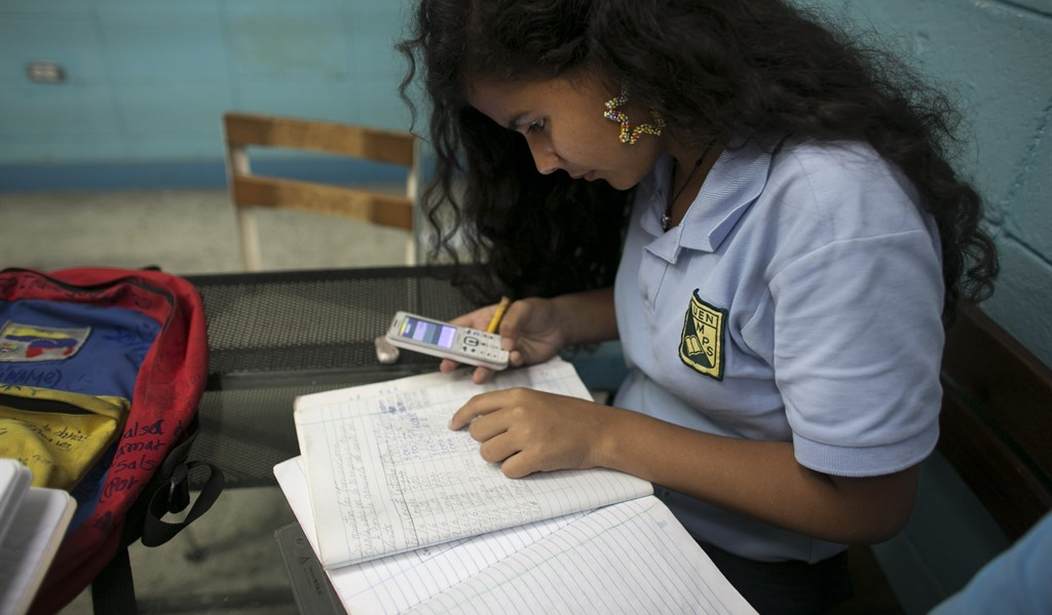This past summer, my teenaged son attended a weeklong conference out-of-state for a well-respected national youth organization dedicated to fostering leadership and community service. The conference included educational workshops, recreational activities and team-building events.
But to fully participate and get the most out of the experience, attendees needed to download and use a mobile app. Kids who don’t have smartphones, like my son, missed out on a lot. For example, points were awarded by scanning other participants’ and event stations’ QR codes with their phones. Prizes were awarded to those who earned the most points.
And that’s at the heart of most parents’ present dilemma about whether or not to get their child a smartphone. It seems you’re damned if you do, and damned if you don’t. So much of our daily lives hinge on digital devices and mobile apps. Most of it doesn’t need to be mediated through a mobile app but is, nonetheless. If you don’t give your child a smartphone, what are they missing out on? And what are they missing out on if you do?
I was told by one father that at his daughter’s public high school, hall passes were on the students' phones. Another parent recently complained that her child’s school is saying she needs to download an app in order to ride the bus.
One parent shared the frustration of learning that her son was missing important updates about his high school sports team because the coaches use X and Snapchat to communicate. Another parent complained about her daughter being expected to be on a group chat between the coaches and athletes – who are all aged 12-15 – that the parents weren’t allowed to be on. Her concerns were dismissed by the coaches who said a group chat with only the athletes (no parents) would help the team bond. When the parent pushed-back and said her daughter could not be on the group chat unless she could also see the messages, her daughter was excluded entirely from this oh-so-important “bonding” activity.
Recommended
Many parents don’t want to cave-in to the social pressure to give their kids smartphones, but feel helpless against a tsunami of social forces that push them to get their kids on devices at younger and younger ages. Social forces that include the very institutions that are meant to help and provide support in the healthy rearing of children into responsible young adults.
These parents have watched their children’s social life transform from energetic outdoor play to endless scrolling through social media feeds. They’ve seen their once bright, outgoing child become moody, sullen, depressed and isolated. They’ve also heard the genuine pain their children feel at being excluded because “everyone else has a phone.” They have no one to talk to at lunch because all of their friends are staring at screens.
Parents know it’s a problem. What they need are systems that support their decision to keep kids off screens for as long as possible, rather than backing them into a corner where they feel forced to go along so that their children aren’t punished for not having a phone.
There is hope that some of this may finally be about to change as more and more states are looking at bills aimed at curtailing or entirely banning cellphone use in schools.
California just joined the ranks of states that have passed bills aimed at curtailing student cellphone use during the school day. In September, the Virginia Department of Education released recommendations that cellphones be banned for students during the school day, following VA Governor Youngkin’s executive order calling for “phone free” schools.
Across the country there has been growing concern around the role technology plays in the lives of America’s children, especially when technological tools, like smartphones, are facilitating things like online bullying, sexting and social media addiction.
Problematic smartphone use, defined as “a cognitive, emotional and behavioral pattern of excessive use of smartphones that interferes with one's personal life and involves social conflict, loss of interest in other activities and tolerance, craving, and sustained use despite adverse consequence,” is associated with a higher risk for depression. One recent study found that 16-to-18-year-olds reporting problematic smartphone use were twice as likely to experience anxiety and three times as likely to suffer from depression, compared to those who did not have problematic use.
Teachers are overwhelmingly in favor of keeping phones out of the classroom. In August, new data showed that 90 percent of National Education Association members “support school policy prohibiting cell phone/personal devices during instructional time.” NEA members cited a number of concerns, including that social media use impacts the mental health of students, and that smartphones can be weaponized against classmates and teachers. And let’s not forget that social media and technology is addictive and can expose children to predators, sexually explicit and graphically violent content.
That more schools are proactively taking steps to curtail or eliminate these devices during the day is an encouraging development, to be sure. But although many schools, teachers and even administrators are finally wising-up to the enormous challenges created by having kids chronically online; unfortunately, many sports teams, youth organizations and other extra-curricular activities are slow to catch-on, putting families that want to keep their kids phone-free at a disadvantage. And that needs to change.
Melissa Henson is Vice President of Programs for the Parents Television and Media Council, a nonpartisan education organization advocating responsible entertainment. On X: @ThePTC
























Join the conversation as a VIP Member